Prebiotic vs. Probiotic: What Is the Difference?
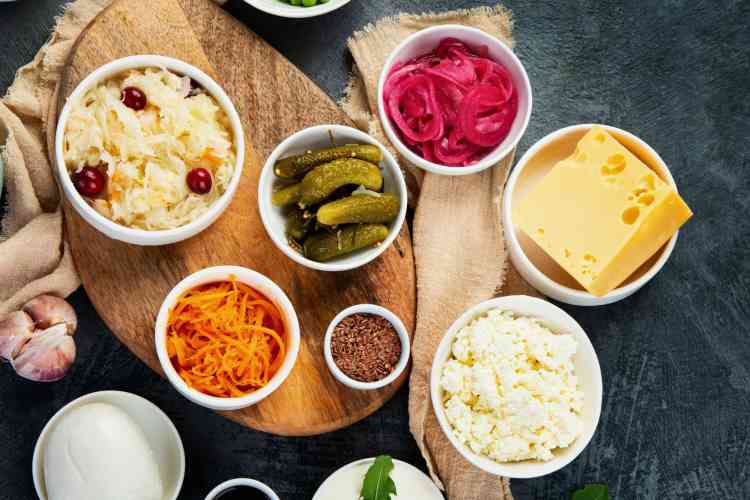
Are you confused about the difference between the terms prebiotic vs. probiotic? You're not alone. In the wellness world, these phrases often get tossed around interchangeably, leading to a fair bit of misunderstanding. So, let's clear things up: what's the real deal between prebiotic vs. probiotic?
Are prebiotics and probiotics two sides of the same coin, or do they have distinct roles in maintaining our well-being? We will pick apart this dynamic duo of digestive health and uncover what sets them apart and also how they work together.
What Are Prebiotics and Probiotics?
So, what are prebiotic vs. probiotic food sources and what can they do for us? Probiotics are the superheroes of your gut, beneficial bacteria that swoop in to save the day when consumed in sufficient amounts. They're the good guys found in probiotic rich foods, with the power to restore balance and aid digestion.
Meanwhile, prebiotics are the trusty sidekicks. Their role is to nourish the probiotics already residing in your gut, ensuring they thrive and keep you fighting fit. Therefore, the battle is not between prebiotic vs. probiotic. Rather, they team up for the benefit of your digestive health. To answer the question "what is prebiotic vs. probiotic", they are an unbeatable team, working in harmony to fortify your gut fortress and support your overall health.

What Is the Difference Between Prebiotics and Probiotics?
It's important to understand the difference between prebiotics vs. probiotics if you are aiming for better gut health. The difference between the two can be understood better if you imagine your gut as a garden, teeming with life. In this garden, probiotics are similar to the beneficial insects that ensure pollination and a thriving ecosystem. Just as bees and butterflies seek out specific flowers, probiotics have their tasks to carry out. From aiding digestion to bolstering your immune system and even influencing your mood.
Now, as for prebiotics, they are like the fertile earth, rich in essential nutrients and fibers that provide sustenance for the probiotics that live within your digestive tract. These non-digestible fibers serve as the fuel for the probiotics, much like how nutrient-rich soil ensures the health and vitality of a garden's plant life.
While prebiotic vs. probiotic roles differ, they are interconnected. Probiotics rely on prebiotics for nourishment, while prebiotics rely on probiotics to help break down and ferment them into beneficial byproducts like short-chain fatty acids. Sources of prebiotic vs. probiotic differ, but they unite to form a symbiotic relationship that promotes a healthy gut microbiome, supporting digestion, immune function and overall well-being. In the delicate balancing act of probiotic vs. prebiotic, a balanced intake of foods with sources of both cultivates a flourishing gut environment, ripe with health benefits for the body and mind.
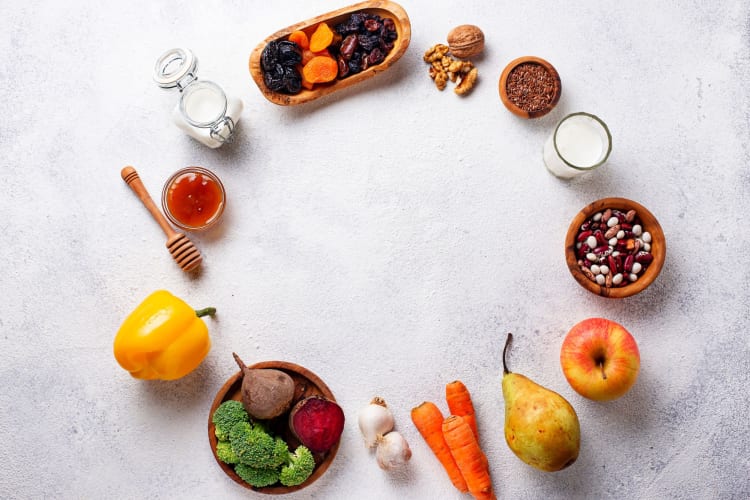
What Are the Health Benefits of Prebiotics and Probiotics?
Not so much rivals as teammates, as we've mentioned, it's not a battle of prebiotic vs. probiotic foods. On the contrary, they work together to help keep your digestive system in shape. Prebiotic foods are rich in indigestible fibers that not only nourish the good bacteria but also create an environment where they thrive, promoting a healthy gut microbiome and keeping digestive issues like irritable bowel syndrome (IBS) at bay.
Meanwhile, on the other side of the story, probiotics battle against invading pathogens and fortify the immune system. By crowding out harmful microbes and strengthening the gut barrier, probiotics play a crucial role in preventing infections and reducing inflammation, ensuring your digestive system stays in tip-top condition.
Furthermore, when prebiotic vs. probiotic armies join forces, they work together to amplify their health benefits. Together, prebiotic vs. probiotic sources form a formidable alliance, promoting not only a healthy gut but also a strong immune system and even influencing mood and cognitive function. There is much scientific interest in the numerous physical and mental health benefits prebiotic vs. probiotic foods bring, with study after study carried out into health effects, showcasing new advantages to this terrific twosome.

Probiotic Foods
From tangy yogurt to zesty kimchi and bubbly kombucha, fermented foods are packed full of these beneficial microorganisms. For those seeking a more concentrated dose, probiotic supplements provide a convenient option to boost the effects of probiotics and support digestive health. Try a few of these probiotic foods and start improving your gut health today.
1. Sauerkraut
Sauerkraut, a staple in many cuisines, offers a potent punch of probiotic goodness. The cabbage goes through the process of lacto-fermentation, harboring beneficial bacteria, particularly strains of Lactobacillus, to encourage a healthy prebiotic vs. probiotic environment. Rich in vitamins, minerals and antioxidants, sauerkraut not only adds a savory note to dishes but also nourishes the body from the inside out.
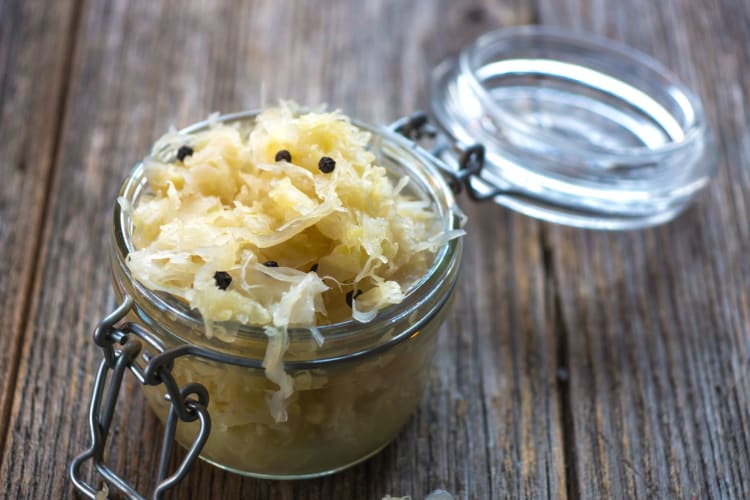
2. Kimchi
Kimchi or a piquant Korean sauerkraut, is typically made from cabbage, radishes and a blend of spices. Kimchi undergoes a natural fermentation process that enhances its probiotic qualities. Lactobacillus bacteria, abundant in kimchi, work wonders in the gut, aiding digestion, supporting the immune system and promoting a healthy balance.

3. Kefir
This tangy and effervescent fermented drink, is renowned for its probiotic qualities, making it an elixir for good gut health. Kefir populates the gut with beneficial microbes, promoting a harmonious prebiotic vs. probiotic balance within the microbiome. Its rich nutrient profile, including protein, calcium and vitamins, enhances its appeal as a wholesome beverage.
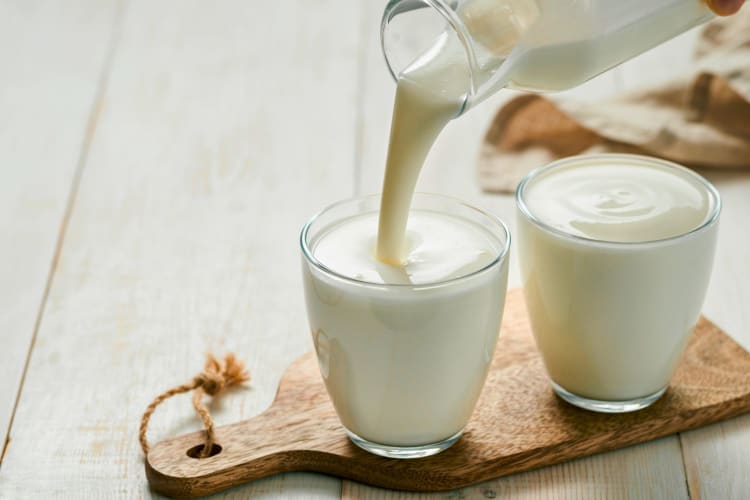
4. Kombucha
Best described as a fizzy fermented tea, kombucha has garnered attention for its impressive probiotic qualities. Through the fermentation process, kombucha becomes enriched with a variety of beneficial bacteria, including strains like Lactobacillus, Acetobacter and Saccharomyces. As well as contributing towards prebiotic vs. probiotic harmony, these microorganisms help to crowd out harmful pathogens and reduce inflammation.
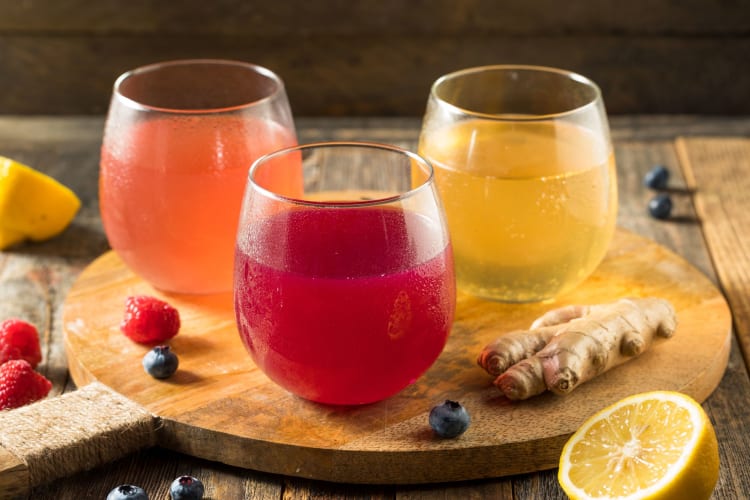
5. Tempeh
Tempeh, a traditional Indonesian ingredient, is a probiotic-rich food source packed into a versatile, plant-based package. It's made from soybeans, which are fermented to enhance its flavor, texture and also elevate its nutritional profile. During fermentation, beneficial bacteria flourish, lending tempeh its characteristic earthy taste and firm texture. These probiotics work wonders in the gut, nurturing a prebiotic vs. probiotic balance. Additionally, tempeh serves as a rich source of protein, fiber and essential nutrients.
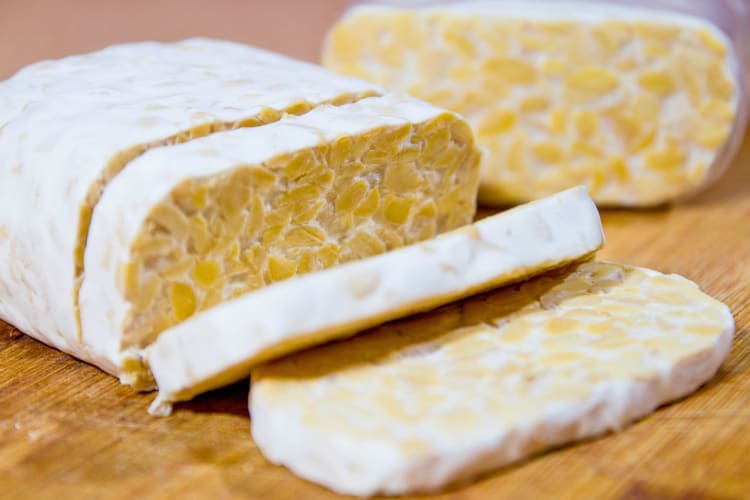
6. Miso
Miso, a Japanese seasoning made from fermented soybeans, hosts a diverse community of beneficial bacteria, including strains like Lactobacillus and Bifidobacterium, known for their gut-friendly attributes. Regular consumption of miso not only helps digestion but also supports the immune system, reduces inflammation and promotes prebiotic vs. probiotic balance. Its umami-rich flavor makes it a versatile addition to soups, marinades, dressings and sauces.
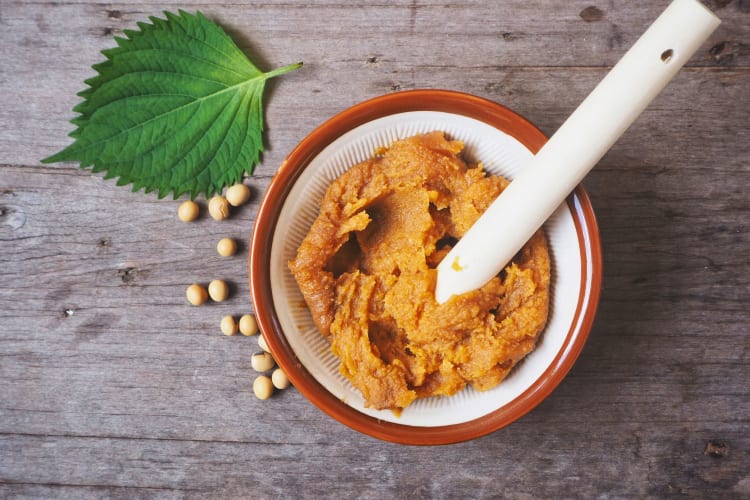
Prebiotic Foods
Fiber-rich foods boast an impressive range of prebiotics, from soluble fibers like inulin to resistant starches found in whole grains and legumes. Even everyday staples like onions, bananas and asparagus are brimming with prebiotic potential. Looking to supercharge your intake? Taking prebiotic supplements is an efficient way to boost the diversity and quantity of prebiotics in your diet, ensuring a flourishing prebiotic vs. probiotic environment.
1. Garlic
Known for its pungent aroma, garlic is also one of the top prebiotic foods, contributing to good gut health. Garlic contains a unique type of prebiotic fiber called inulin, which serves as a food source for beneficial bacteria in the gut. As these bacteria ferment inulin, they produce short-chain fatty acids, such as butyrate, which help maintain a healthy prebiotic vs. probiotic balance. Additionally, garlic contains allicin, an antimicrobial compound that can target harmful bacteria.
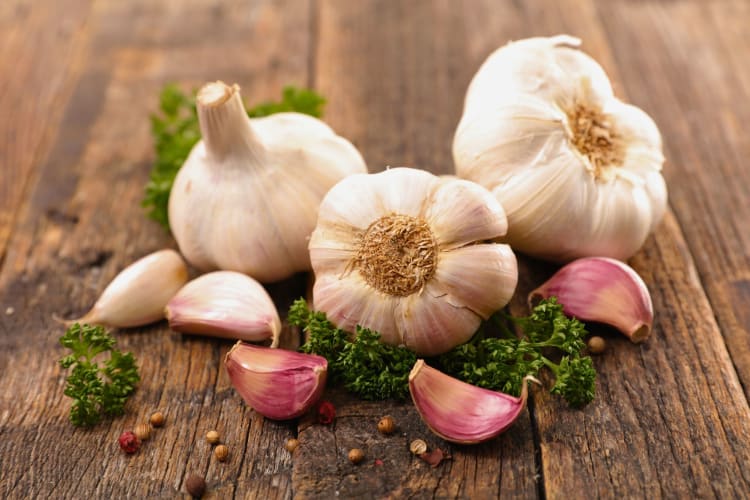
2. Bananas
Bananas are rich in resistant starch and pectin, serving as a key source of nourishment for the beneficial bacteria residing in our gut. These indigestible fibers travel through the digestive tract, reaching the colon where they ferment and fuel the growth of probiotics, promoting a healthy prebiotic vs. probiotic balance. Additionally, bananas contain fructooligosaccharides, another type of prebiotic fiber known for its ability to support digestive health by stimulating the growth of beneficial bacteria.

3. Chicory
Beneath chicory’s unassuming exterior lies a rich reservoir of inulin, a type of soluble fiber known for its potent prebiotic qualities. As it passes through the digestive tract undigested, inulin serves up a banquet for beneficial bacteria in the gut, fueling their growth. Studies suggest that incorporating chicory into the diet can encourage a prebiotic vs. probiotic equilibrium, enhancing digestion and supporting overall health.
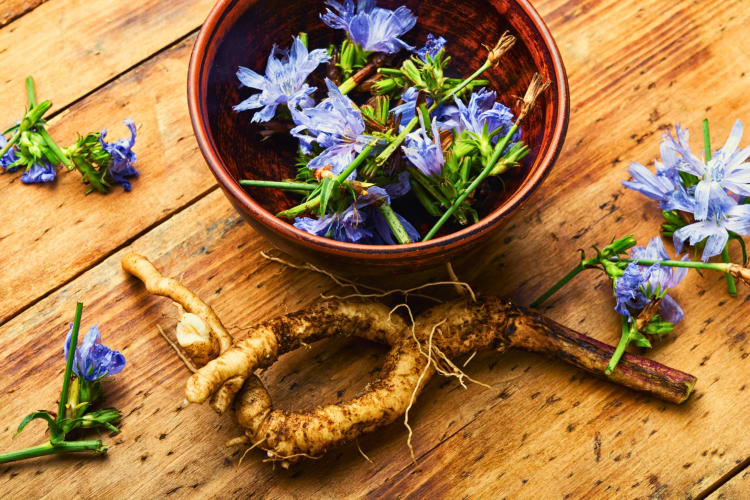
4. Oats
Oats are important not only for their heart-healthy benefits but also for their prebiotic qualities. Packed with soluble fiber, particularly beta-glucans, oats provide fuel for the beneficial bacteria residing in your gut. Additionally, oats boast resistant starches, which escape digestion in the small intestine and reach the colon intact, further nourishing the gut microbiota. Incorporating oats into your diet offers a delicious and nutritious way to support digestive health.
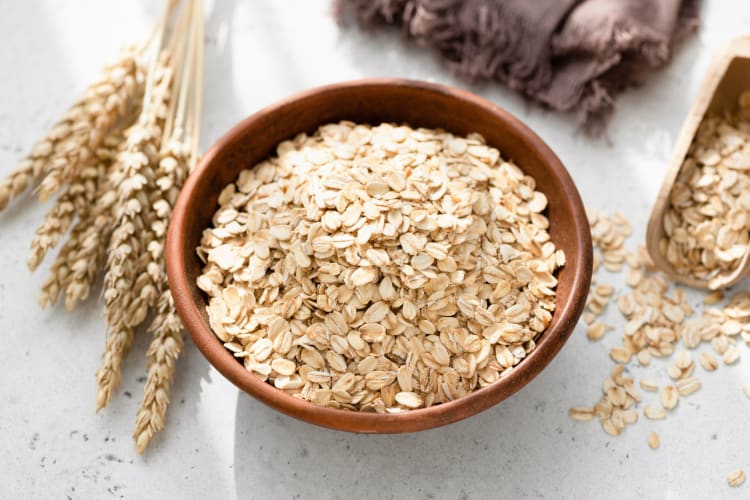
5. Beans
Beans boast an impressive array of prebiotic qualities. Packed with soluble fiber, black beans and lentils serve as rich sources of prebiotics, nourishing the beneficial bacteria living in the gut. This soluble fiber, including galacto-oligosaccharides, ferments in the colon, producing short-chain fatty acids that promote a healthy gut environment. Incorporating beans into your diet offers an easy way to support the prebiotic vs. probiotic balance.
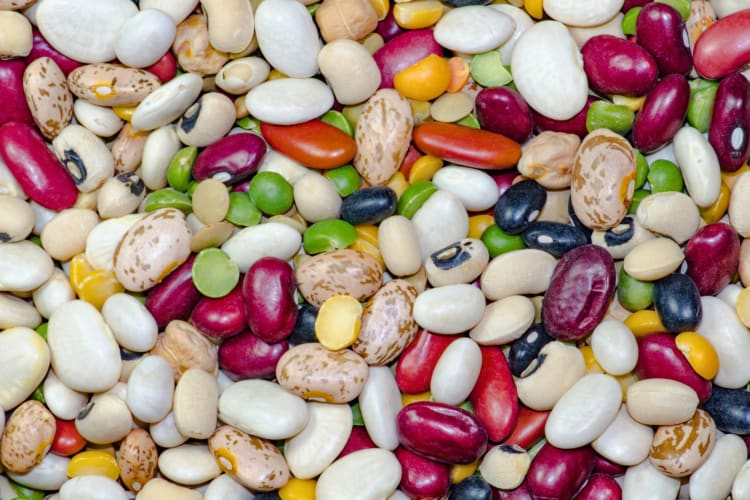
Understanding the distinction between prebiotics vs. probiotics is paramount for optimizing gut health. While probiotics introduce beneficial live bacteria into the digestive system, prebiotics serve as nourishment for these bacteria, aiding in their growth and activity. When the prebiotic vs. probiotic sources come together, they form a powerful duo in maintaining a balanced microbiome. So, whether through changing your diet or opting for supplementation, prioritizing the balance between prebiotic vs. probiotic could be the key to a vast number of health benefits.
For even more ways to explore your favorite foods, check out other experiences happening on Cozymeal.
